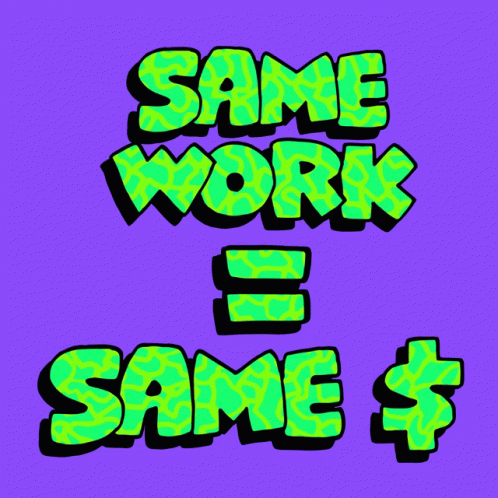It’s a legal requirement for companies with over 250 employees to publish their annual gender pay statistics. This is required within the UK, different countries will have their own rules on this type of information. However, from these records, we have been able to see how the pay gap differs within the music industry.


 UK gender pay gap
UK gender pay gap
Each year UK companies are required to publish their statistics on their pay gap. This comes after many years of arguments and protests over rights on fair pay. Which, we fully support. The deadline this year was October 5th 2021, and we now have our hands on the results. We’re interested to see how the music industry works for equality. With the pandemic, companies weren’t required to release this information in 2020, so really they’ve had extra time to fix anything that wasn’t fair.
Despite not being required to release the data, multiple music companies released their information previously anyway. Sony Music and Warner Music both released their UK gender pay gaps which we’re here for. After all, if you’ve got nothing to hide you’d share this information, right? During this time, Sony Music revealed a mean average of 26.0%, whereas Warner Music were sitting at 31.5%.

It’s interesting that they’ve published these results as both companies have changed from the previous year. One for the better and one not as much. Sony Music sat at 20.9% and Warner Music found themselves at 38.7%. Warner Music seem to have made a huge improvement with this gap, dropping quite significantly. Whereas Sony Music have gone the other way. Perhaps the highest paid roles come into these statistics quite heavily. It is important to keep this in mind when reviewing these results.
So, where are we at now?
Sony Music
| Gender | Male | Female |
| Highest earning | 61% | 39% |
| Upper middle earners | 46% | 54% |
| Lower middle earners | 52% | 48% |
| Lowest earning | 44% | 56% |
According to Sony Music, 49% of their UK workers are female. It’s important to note these statistics don’t mention how each of their worker’s identity, so we can only presume these results are based upon the gender stated on their records.
Bonuses were awarded to men more than they were women. Perhaps this is due to the statistics of overall earnings between men and women. Women were paid 50.4% less than men when it came to bonuses. I think it is important to note that the jobs aren’t specified, so we can’t state what roles are most popular between the genders.
Warner Music
| Gender | Male | Female |
| Highest earning | 61% | 39% |
| Upper middle earners | 50% | 50% |
| Lower middle earners | 40% | 60% |
| Lowest earning | 49% | 51% |
Again, women were paid less when it comes to bonuses. Overall 86% of men received a bonus and 76% of women also did. However, women received 56.9% less as an average than men, when it came to their bonus. So, overall women are paid less when it comes to bonuses and their salary. Why is it that the higher paid jobs are mainly made up of men? Is this down to the roles interesting more men or is it because they’re typically favoured when it comes to the music industry?
Universal Music
| Gender | Male | Female |
| Highest earning | 74% | 26% |
| Upper middle earners | 60% | 40% |
| Lower middle earners | 50% | 50% |
| Lowest earning | 47% | 53% |
According to Universal Music, 42% of their employees are female. Looking at that number compared to the pay divide is quite shocking. A significant amount of men have far higher paying jobs than females within the company. Again as their competitors, females aren’t offered the same bonuses. With women being paid 49.6% less. However, 80% of women were given a bonus compared to 79% of men. Is this because they’re paid less, therefore cost less, so they can add more bonuses in for women? Or, are the genuinely trying to balance it out in some way? You could argue to just up their salaries instead.
Spotify
| Gender | Male | Female |
| Highest earning | 67.6% | 32.4% |
| Upper middle earners | 57.9% | 42.1% |
| Lower middle earners | 50% | 50% |
| Lowest earning | 47.6% | 52.4% |
Again bonuses aren’t even, they might be slightly better than other companies with women receiving 40.3% less than men. The amount of women to men receiving bonuses however is fairly even. 63.3% of women get a bonus through Spotify, while 63% of men also do.
Apple Music
| Gender | Male | Female |
| Highest earning | 87% | 13% |
| Upper middle earners | 89% | 11% |
| Lower middle earners | 79% | 21% |
| Lowest earning | 63% | 37% |
It’s very clear Apple have a strong divide of men and female employees. Even out of the split, men are still paid 33% less when it comes to bonuses. It’s not a strong look for a company that are so huge. Surely they would pride themselves on being more diverse. However, 97% of men receive a bonus and 94% of women. It’s slightly more even but still, they’re not receiving a similar amount.
It will be interesting to see how the figures differ next year. Overall, it’s clear that there is still a pay gap within the UK music industry as I’m sure there is with most industries. However, it is great to see it slowly starting to close. It’s 2021 so why everyone isn’t equal is questionable. What do you think about this? Do you think we’ll move closer to an evenly paid music world? Or should our efforts remain with the streaming industry and how that’s paid?






